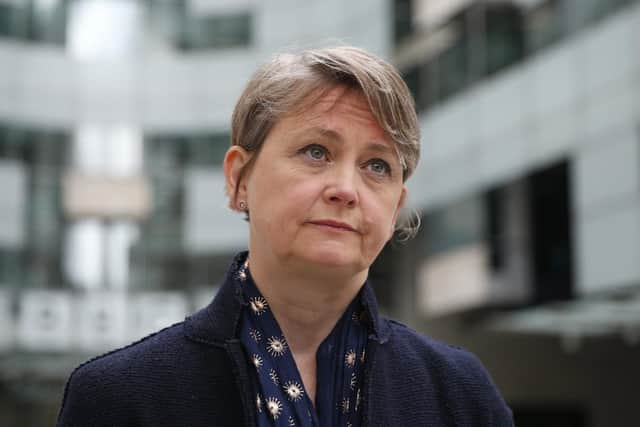Faced with shifting security threats Britain needs to adapt - Yvette Cooper
Families can’t prosper if they struggle with anxiety, instability and dislocation. A community cannot be cohesive if it is divided by fear. A nation cannot thrive if it is under attack.
Labour’s approach to security is anchored in our values. Our fierce defence of democracy and the rule of law, at home and around the globe.
Advertisement
Hide AdAdvertisement
Hide AdOur belief in individual freedom, respect for each other, and in strong communities coming together to support each other and our commitment to fairness and social justice for all.


Keir Starmer and I both made clear the importance of national security.
When Britain faced an attack on our soil in Salisbury in 2018, we made clear at the time I thought that Jeremy Corbyn as Labour leader was wrong to prevaricate over Russia’s responsibility.
I was also appalled by the carelessness and contempt for national security that former Conservative Prime Minister Boris Johnson showed while Foreign Secretary at the height of the Skripal crisis, meeting alone with an ex-KBG officer, on the way back from a NATO summit on Russia, failing to even properly report it and claiming he could not even remember whether Government business had been discussed.
Advertisement
Hide AdAdvertisement
Hide AdAs the risks and challenges to our national security become ever more complex, our country cannot afford that kind of cavalier approach from its government. In recent decades, all of us have seen the geopolitical kaleidoscope shaken and transformed, as the nature of terrorism has changed and the threats to our nation have evolved.
I grew up during the Cold War and at the time of the Northern Ireland Troubles – before the Berlin Wall came down and the Good Friday Agreement was signed.
9/11 changed our world. Four years later on 7/7, I left Kings Cross on a Ministerial visit just 15 minutes before the first bomb went off underground. I recall the years of immense work to build a strong counter terror response.
As the update to the Government’s Integrated Review warned in March, “the transition into a multipolar, fragmented and contested world has happened more quickly and definitively than anticipated” and “we are now in a period of heightened risk and volatility”. The UK faces continued challenges from Islamist and far right extremists, radicalised online, in prison or in the community.
Advertisement
Hide AdAdvertisement
Hide AdMeanwhile we have seen a steep rise in state-sponsored threats, stretching far beyond conventional espionage.
We are seeing an increasingly complex network of actors posing a risk to our national security. New threats including cyberattacks, ransomware and attempts to undermine our democracy.
At the same time, as the recent Intelligence and Security Committee report warns, the rise of China poses a different kind of challenge.
Faced with those shifting sands we need to change and adapt our approach.
An abridged version of a speech by Yvette Cooper, Labour’s Shadow Home Secretary, at the Royal United Services Institute.